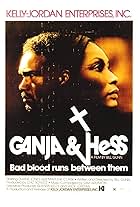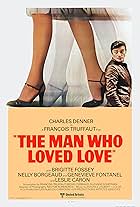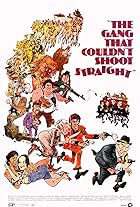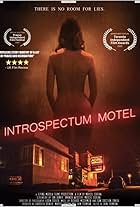Gunn's first directorial feature is mostly famous for being a "lost" film, shelved by Warner Brothers due to its X rating and uncommercial nature-let's face it, it would have likely been seen by very few even if it HAD been released-then kept unavailable due to apparent legal issues. In style, atmosphere and occasional narrative fragmentation, it does sometimes recall his best-known work "Ganja and Hess," which suffered almost equal mistreatment by its producers but did at least manage to get seen.
Linda Marsh and Edward Michael Bell play a chic, well-off but discordant young married couple on the verge of breaking up-and it's hard to argue that they shouldn't do so, since they get on each others' nerves most of the time. Still, they're not quite so badly off as his brother, who (as we see in flashback) killed himself after killing his own wife. The lead characters must go to San Juan to dispose of the brother's house, and they treat it as a vacation, while remaining at one another's throats. They do however meet another couple, played by Marlene Clark and Richard Dow, and this leads to collective sexual experimentation that may or may not fill the (ahem) gaps in the protagonists' relationship.
With its characters almost invariably dressed in white, in white settings, "Stop" is always visually thoughtful and interesting, even if the video dupe by which it's become viewable in some underground channels hardly does Owen Roizman's photography or the production design full justice. The movie does get more trippy and intriguing as it goes on, a bit in the manner of something contemporaneous like "Performance," though in this case sex is apparently the only drug on hand. But the characters are shallow and uninvolving. There's nothing to them beyond their physical attractiveness (though unusually for the period, Gunn seems to care as much about the men's bodies as the women's), and the film doesn't weave quite enough of a spell for the now-fairly-mild orgiastics to lend the frail narrative a sense of sufficient meaning and (ahem again) climax.
It's an eccentric experiment, but if "Stop" had been available all along, it probably wouldn't have any greater stature than a number of other arty and pretentious dramas of the early 1970s, when Hollywood was willing to gamble on new talent and struck out more often than it scored a base hit. If it had been made in Europe, it wouldn't have impressed anyone as too out-there to release, and indeed it does feel like a lot of "decadent," vaguely countercultural, erotic melodramas that were being made there around the same time. Like most of them, it's not really a good movie, but it's a good timepiece reflecting the kind of cinematic adventurousness that was being encouraged then. In practical terms, Warner Brothers was right: Who was the audience for this film? Upscale swingers? In a couple years, even those people would have hardcore fare like "Deep Throat" available at their local theaters.

























